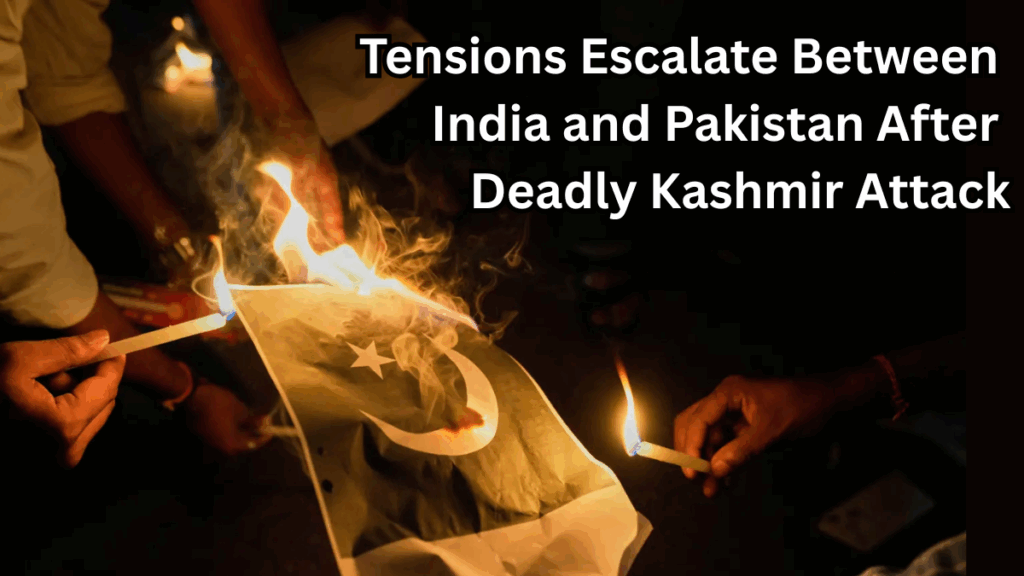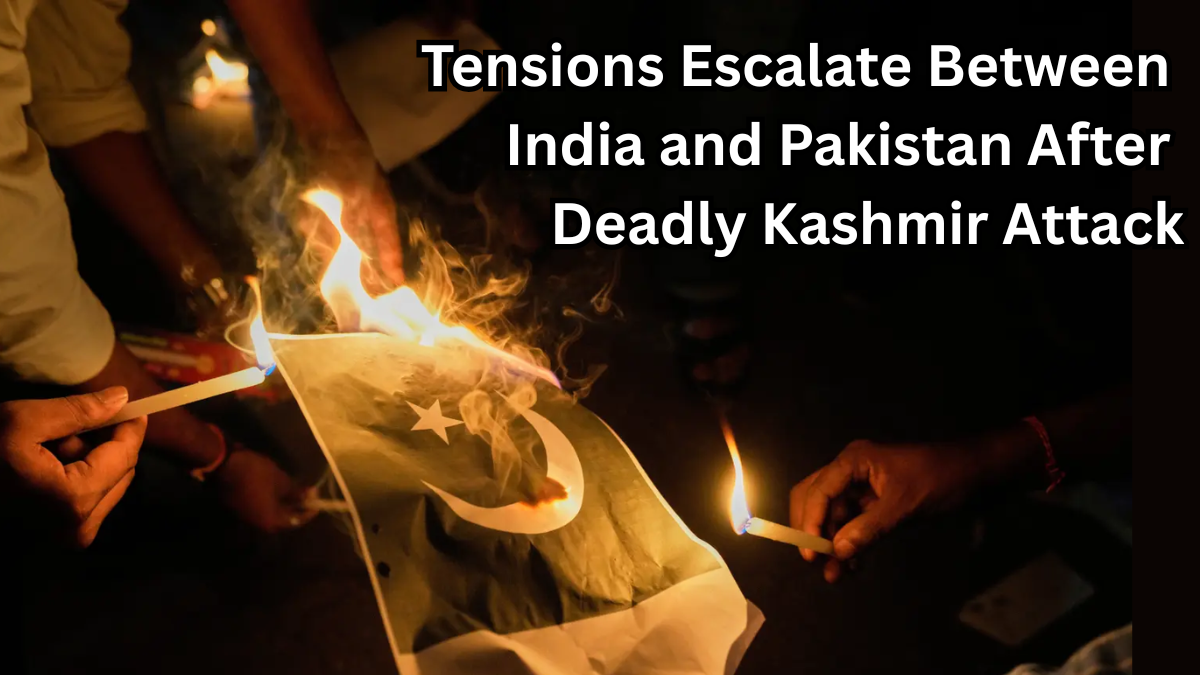The fragile peace between India and Pakistan is once again on a knife’s edge after a devastating attack on tourists in Kashmir led to brief cross-border gunfire and a wave of escalating retaliations.

Gunfire Along the Line of Control
Late Thursday night, Indian army officials reported that Pakistani soldiers opened fire on an Indian position along the Line of Control (LoC) in Kashmir. In response:
-
Indian soldiers swiftly retaliated.
-
No casualties were reported on either side.
-
Both sides remained on high alert as tensions simmered.
Pakistan’s Ministry of Foreign Affairs declined to comment on the incident, but the timing speaks volumes about the increasingly strained relations.
Timeline of Escalating Tensions
| Event | Details |
|---|---|
| Tuesday | Deadly attack on tourists near Pahalgam, killing 26 people. |
| Wednesday | India suspended the historic water-sharing treaty and shut down the only land border crossing. |
| Thursday | India revoked all visas issued to Pakistani nationals, effective from Sunday. |
| Friday | Exchange of gunfire reported, travel bans and trade suspensions initiated by both nations. |
India’s Response to the Attack
The attack, which India has labeled a “terrorist act,” is believed to have been orchestrated by a new group calling itself the Kashmir Resistance. In the aftermath:
-
India accused Pakistan of supporting the assailants.
-
Pakistani visas were canceled en masse.
-
Border closures and trade suspensions were enforced.
-
The government also detonated explosives at the homes of suspected militants in southern Kashmir.
One such explosion partially destroyed the home of Asif Sheikh’s family, sparking deep anger and sorrow among the villagers.
“Even if he had done the attack, why blow up the house of a poor family?” cried Afroza, Sheikh’s aunt, overwhelmed with grief.
Pakistan’s Retaliation and Warnings
Pakistan, maintaining it had no link to the attack, took a series of countermeasures:
-
Canceled visas issued to Indian nationals.
-
Closed its airspace to Indian-owned and operated airlines.
-
Suspended all trade with India.
-
Warned that any interference with river flows would be considered an “act of war.”
Pakistan further threatened to suspend the Simla Agreement, a pivotal peace treaty that defines the Line of Control in Kashmir.
Voices from the Ground: Rising Anger and Fear
In Pakistan-administered Kashmir:
-
Hundreds gathered in Muzaffarabad to protest India’s suspension of the water-sharing treaty.
-
Demonstrators burned effigies of Indian Prime Minister Narendra Modi and chanted slogans.
In New Delhi, India:
-
Markets were shut down in protest against the killings.
-
Crowds demanded decisive action against Pakistan.
“Now our patience has run out,” declared protester Surekha Sharma. “Now we want revenge for this.”
Global Concerns and Calls for Restraint
The United Nations stepped into the escalating situation, urging both countries:
-
To exercise maximum restraint.
-
To resolve their issues peacefully and through meaningful dialogue.
Despite decades of hostilities and unresolved disputes over Kashmir, global powers remain hopeful that diplomacy will prevail over war.
FAQs
1. Why did India cancel Pakistani visas and suspend the water treaty?
India took these measures following the deadly attack in Kashmir, which it blames on Pakistan-backed militants.
2. What is the Simla Agreement that Pakistan threatened to suspend?
The Simla Agreement, signed in 1972, is a crucial peace treaty that established the Line of Control and mandates peaceful resolution of disputes between India and Pakistan.
3. How are civilians being affected on both sides?
Civilians are facing disruptions in travel, trade, and daily life. Families are being displaced due to home demolitions in Kashmir, and people are stranded because of visa cancellations and airspace closures.
4. What role is the United Nations playing in this crisis?
The UN has issued statements urging both India and Pakistan to show restraint and seek a peaceful, diplomatic resolution to the escalating tensions.
Click here to learn more
Pari is a passionate writer known for captivating stories that blend imagination and reality. Inspired by travel, history, and everyday moments, Pari crafts narratives that resonate deeply with readers.
